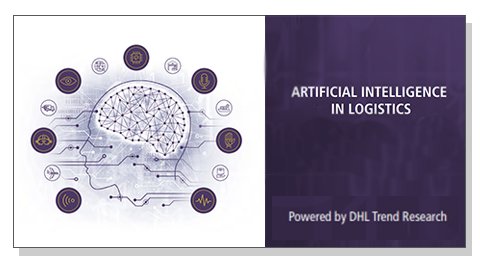ARTIFICIAL INTELLIGENCE IN LOGISTICS
.
Implications and Use Cases for the Logistics Industry
.
Today we find ourselves in another transformational era in human history.
Much like the agricultural and industrial revolutions before it, the digital revolution is redefining many aspects of modern life around the world. Artificial intelligence (AI) plays an increasingly central role in this transformation.
In recent years, AI has come roaring out of research laboratories to become ubiquitous and ambient in our personal lives, so much so that many consumers do not realise they use products and applications that contain AI on a daily basis. AI stands to benefit all industries significantly, achieving adoption leaps from consumer segments to enterprises and onward to the industrial sector. Technological progress in the fields of big data, algorithmic development, connectivity, cloud computing and processing power have made the performance, accessibility, and costs of AI more favourable than ever before.
Already today, AI is prevalent in consumer-facing applications, clerical enterprise functions, online and offline retail, autonomous mobility, and intelligent manufacturing. Logistics is beginning its journey to become an AI-driven industry, but the future is still rife with challenges to overcome and opportunities to exploit.
Looking ahead, AI has the potential to augment current logistics activities from end to end significantly. As in other industries, AI will fundamentally extend human efficiency in terms of reach, quality, and speed by eliminating mundane and routine work. This will allow logistics workforces to focus on more meaningful and impactful work.
Source: www.dhl.com
Download DHL & IBM's collaborative White Paper!
.
ARTIFICIAL INTELLIGENCE IN LOGISTICS
.
Follow us and join our online professional business community on social media!
Did you like the article?

